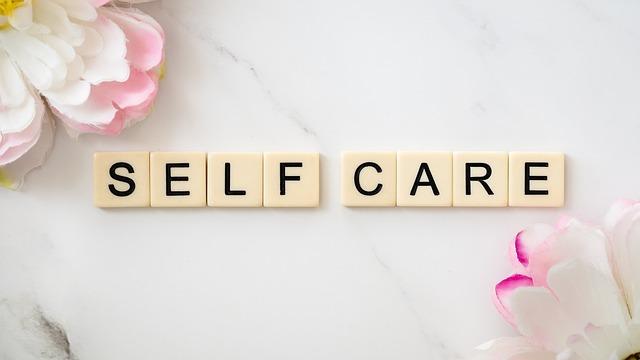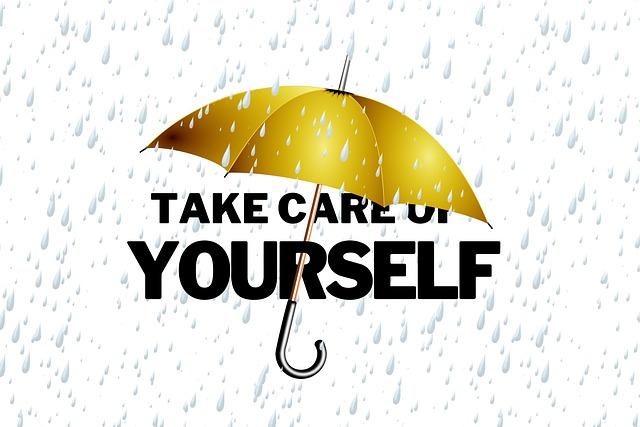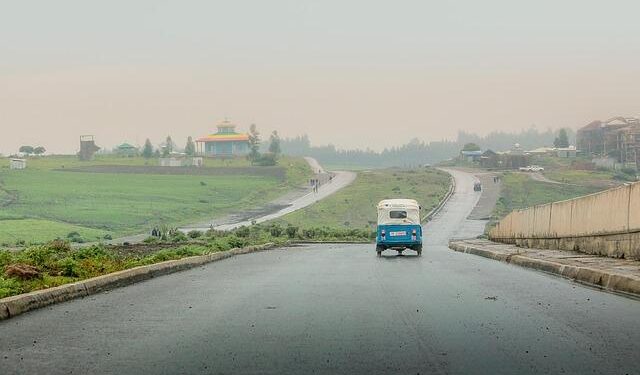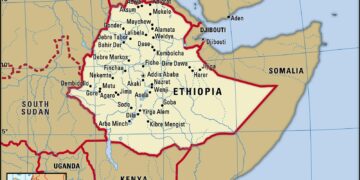In a significant stride towards enhancing health outcomes across the continent, the World Health Organization (WHO) Africa Region convened a landmark self-care summit in Addis Ababa, Ethiopia.This pivotal gathering brought together health experts,policymakers,and advocates from across Africa to discuss innovative strategies for promoting self-care practices that empower individuals and communities in managing their health. As the continent navigates pressing health challenges, the summit underscored the critical role of self-care in achieving universal health coverage and strengthening health systems. With a focus on fostering enduring health behaviors and integrating self-care into existing health frameworks, participants explored a range of topics from mental health to chronic disease management, setting the stage for a transformative approach to healthcare in Africa.
WHO Africa Region Initiates Pioneering Self-Care strategies at Addis Ababa Summit
The recent summit in Addis Ababa marked a significant step towards empowering communities across the African continent through innovative self-care strategies.By fostering local health initiatives, the WHO aims to enhance health literacy and accessibility.Attendees included key health officials, community leaders, and health advocates who engaged in discussions about the importance of self-care practices in improving overall health outcomes. Participants explored various approaches, including:
- Improved health education to encourage proactive health management.
- Access to essential medicines and health services for underserved populations.
- Community-based support networks that facilitate shared experiences and resources.
The summit also introduced a framework for integrating self-care into national health policies, showcasing compelling case studies that illustrate its potential impact. As a collaborative initiative, the success of these strategies hinges on robust partnerships among governments, non-governmental organizations, and community groups. To provide clarity on the proposed frameworks, the following table outlines key self-care components discussed at the summit:
| Component | Description |
|---|---|
| Education | Workshops to increase health literacy and skills. |
| Resources | Access to data, tools, and healthcare products. |
| Support | A platform for sharing experiences and expert advice. |

Key Discussions: Strengthening Community Engagement in Self-Care Practices
The recent Self-Care summit in Addis Ababa served as a pivotal platform for stakeholders to discuss innovative approaches to enhance community engagement in self-care practices. Central to these discussions was the recognition that empowering individuals to take charge of their health is essential for achieving broader public health goals. participants emphasized the importance of collaborative initiatives that bring together local communities, healthcare providers, and policymakers to foster an environment where self-care is not only encouraged but is a fundamental aspect of health education.
Among the key strategies proposed during the sessions were:
- Community Workshops: Organizing regular workshops to educate residents about self-care techniques, nutrition, and mental health.
- Social Media Campaigns: Leveraging social media to raise awareness and share compelling self-care stories that resonate with diverse community members.
- Peer Support Groups: Establishing support networks that allow individuals to share experiences, challenges, and successes related to self-care.
- Inclusive Policies: Advocating for policies that support resource allocation for community-based self-care programs.
the dialogue also highlighted the need for comprehensive data collection to track the impact of these engaged initiatives on community health outcomes. To facilitate informed decisions, a proposed action plan was created, encapsulated in the following table:
| Goal | Action | Expected Outcome |
|---|---|---|
| Increase Awareness | Launch public health campaigns | Enhanced community understanding of self-care practices |
| Boost Participation | Develop incentives for participation | Higher community involvement in self-care activities |
| Improve Resources | Secure funding for local health programs | Expanded access to self-care resources |

Innovative Approaches to Mental Health and Wellbeing Highlighted
The recent Self-Care Summit in Addis Ababa has brought to the forefront several innovative strategies aimed at enhancing mental health and wellbeing across the African continent. This summit not only focused on self-care as a vital component of health but also emphasized the importance of community-based initiatives. Experts shared insights on how technology integration can empower individuals to take charge of their mental health through mobile health applications and online support systems. These tools are crucial in addressing stigma and ensuring broader accessibility to mental health resources, especially in remote areas.
Among the creative methodologies discussed were peer support networks and integrated health services, which foster collaboration among various health professionals. By leveraging local community leaders and practitioners,these approaches aim to create a comprehensive support system that recognizes and addresses individual needs. A table summarizing key innovative practices from the summit is provided below:
| Innovative Practice | Description |
|---|---|
| Digital Mental Health Services | Utilizing apps and online platforms to provide mental health education and support. |
| Community Peer Networks | Building support systems within communities to reduce stigma and encourage open conversations. |
| Integrated Care Models | connecting physical and mental health services for holistic patient care. |

Recommendations for Policy Makers to Support Self-Care Initiatives
To effectively promote self-care initiatives, policy makers should prioritize the creation of supportive frameworks that enhance public awareness and accessibility. investments in education and training are essential, enabling communities to understand the importance of self-care in maintaining health and preventing disease. This could include the progress of targeted campaigns that inform citizens about available resources and strategies for self-care.Additionally, fostering community-led programs can significantly strengthen the outreach of self-care initiatives, making them more relatable and impactful at the local level.
Collaboration among various stakeholders is crucial for establishing a robust self-care ecosystem. Policy makers should engage with healthcare providers, non-governmental organizations, and community leaders to facilitate knowledge sharing and resource distribution. Creating incentives for health professionals to promote self-care practices can lead to increased integration within healthcare services. Moreover, implementing policies that ensure affordability and availability of self-care products and services will empower individuals to take charge of their health. By focusing on these strategies, policy makers can create a sustainable pathway for improving public health outcomes through self-care.

The Role of Technology in Advancing Self-Care Access and Education
In an era where information is abundant yet access to healthcare remains a challenge, technology plays a pivotal role in bridging the gap. Advancements in digital health tools and platforms have revolutionized the way individuals engage with their health management. with the integration of mobile applications, telemedicine, and online educational resources, self-care practices are becoming increasingly accessible. These technologies enable users to take proactive steps toward their well-being, which is essential, notably in underserved communities.
The benefits of technology in self-care are manifold,including:
- Enhanced Accessibility: Information and services can be reached anytime,anywhere.
- User-Pleasant Platforms: Intuitive apps guide users in tracking their health metrics.
- Community Support: online forums provide a platform for peer support and shared experiences.
- Personalized Education: Tailored content meets individual needs and preferences.
Moreover, the importance of training healthcare providers to utilize these technologies cannot be understated. As we embrace a tech-enhanced healthcare landscape, it is crucial to ensure that practitioners are equipped with the skills to effectively guide patients through various self-care options available to them.

Future Directions: Building Sustainable Self-Care Frameworks in Africa
The recent Self-Care Summit held in Addis Ababa has set the stage for a transformative approach to healthcare across Africa. Stakeholders, including policymakers, healthcare providers, and community leaders, converged to discuss the need for a cohesive self-care framework that prioritizes sustainable practices. Building upon existing initiatives, the summit emphasized the importance of integrating self-care strategies into healthcare systems, particularly in underserved areas where access to traditional healthcare can be limited. Key frameworks proposed include:
- Community Engagement: Involving local populations in self-care practices tailored to their cultural contexts.
- Policy Advocacy: Promoting legislative changes that support self-care initiatives at a national level.
- Education and awareness: Launching campaigns that inform citizens about the benefits of self-care and available resources.
The discussions led to the recognition of technology’s pivotal role in advancing self-care in Africa. Mobile health applications and telemedicine can bridge gaps in service delivery, particularly in rural areas. To facilitate this, participants proposed a matrix for collaboration among various sectors—health, technology, and education—to create a holistic self-care ecosystem. The essential components of this ecosystem could be summarized as follows:
| Component | Description |
|---|---|
| Infrastructure Development | Building facilities and networks that support self-care activities. |
| Resource Allocation | Ensuring equitable distribution of materials and funding for self-care programs. |
| Monitoring and evaluation | Implementing systems to assess the effectiveness of self-care initiatives. |
The Conclusion
the landmark Self-Care Summit hosted by the WHO Africa Region in addis Ababa marks a pivotal moment in the journey towards improving health outcomes across the continent. By focusing on self-care, the summit emphasizes the importance of empowering individuals to take charge of their health, thereby alleviating pressure on healthcare systems and promoting resilience within communities. The collective commitment from governments, health organizations, and civil society underscores a shared vision for a healthier Africa. As the discussions and agreements made during this summit take root, there is potential for a transformative impact on public health policies and practices.Moving forward, the key will be ensuring that these self-care initiatives are not only supported financially but also integrated effectively into existing healthcare frameworks. The hope is that the momentum generated here in Addis Ababa will lead to sustainable change, fostering a culture of health empowerment throughout the region.















